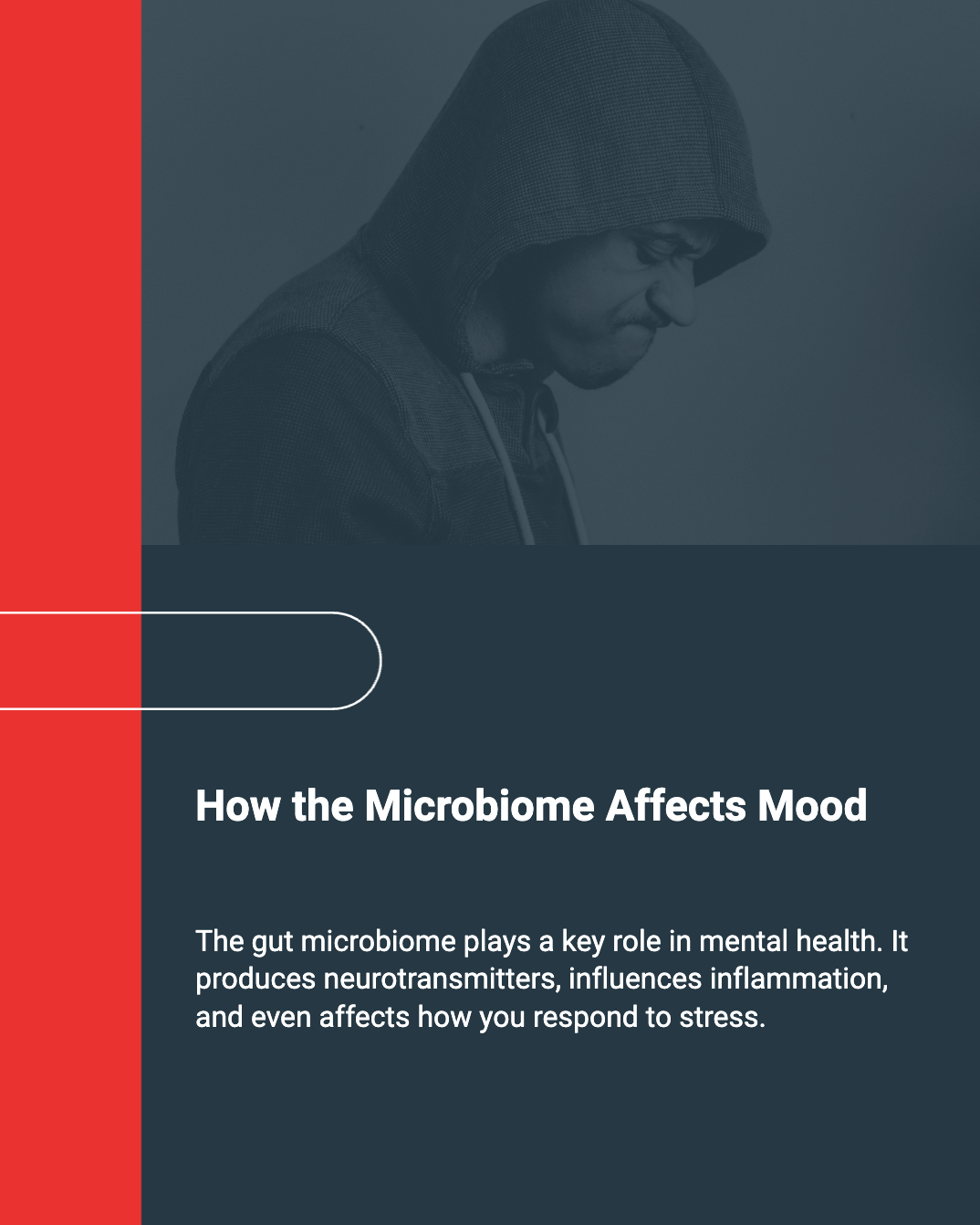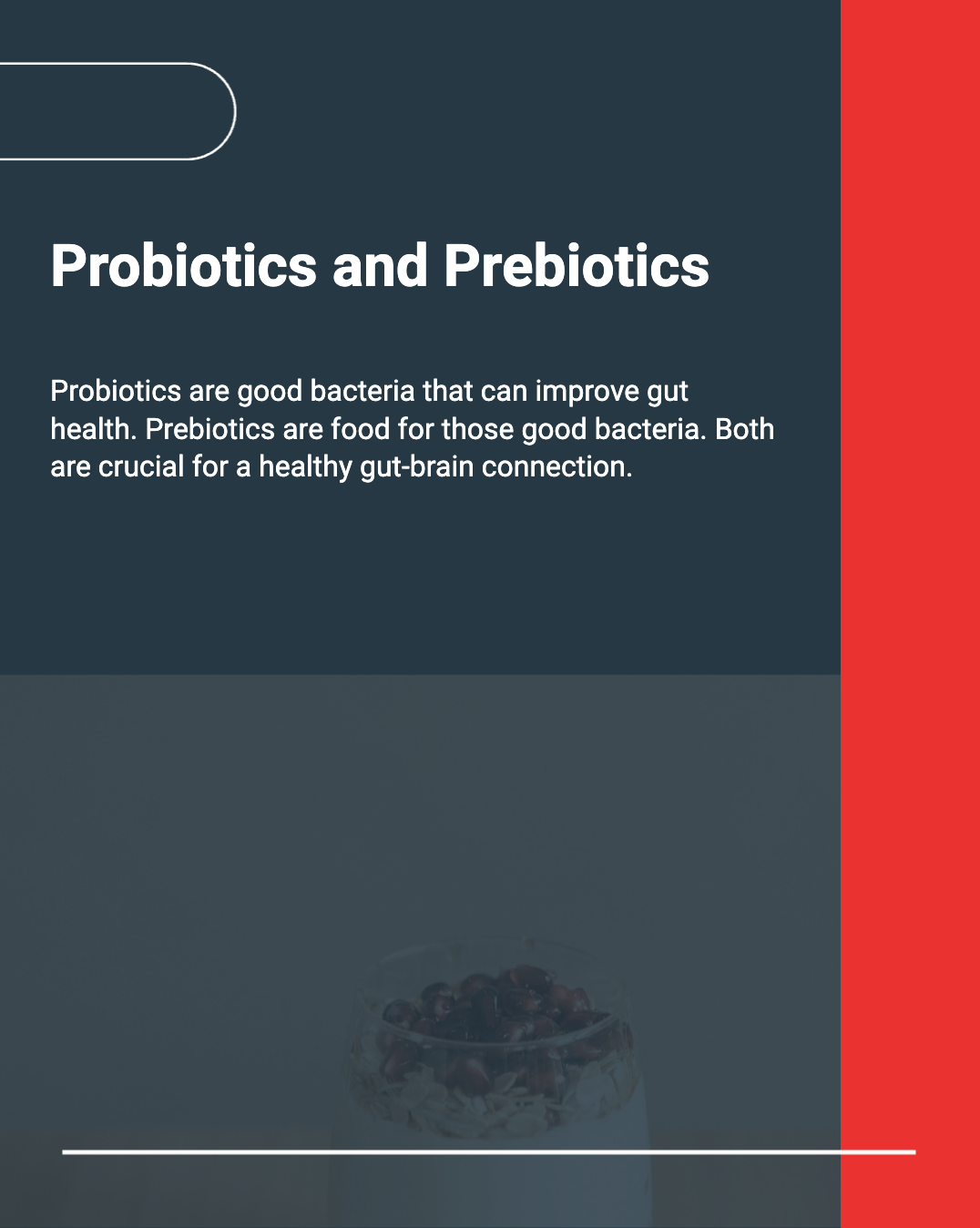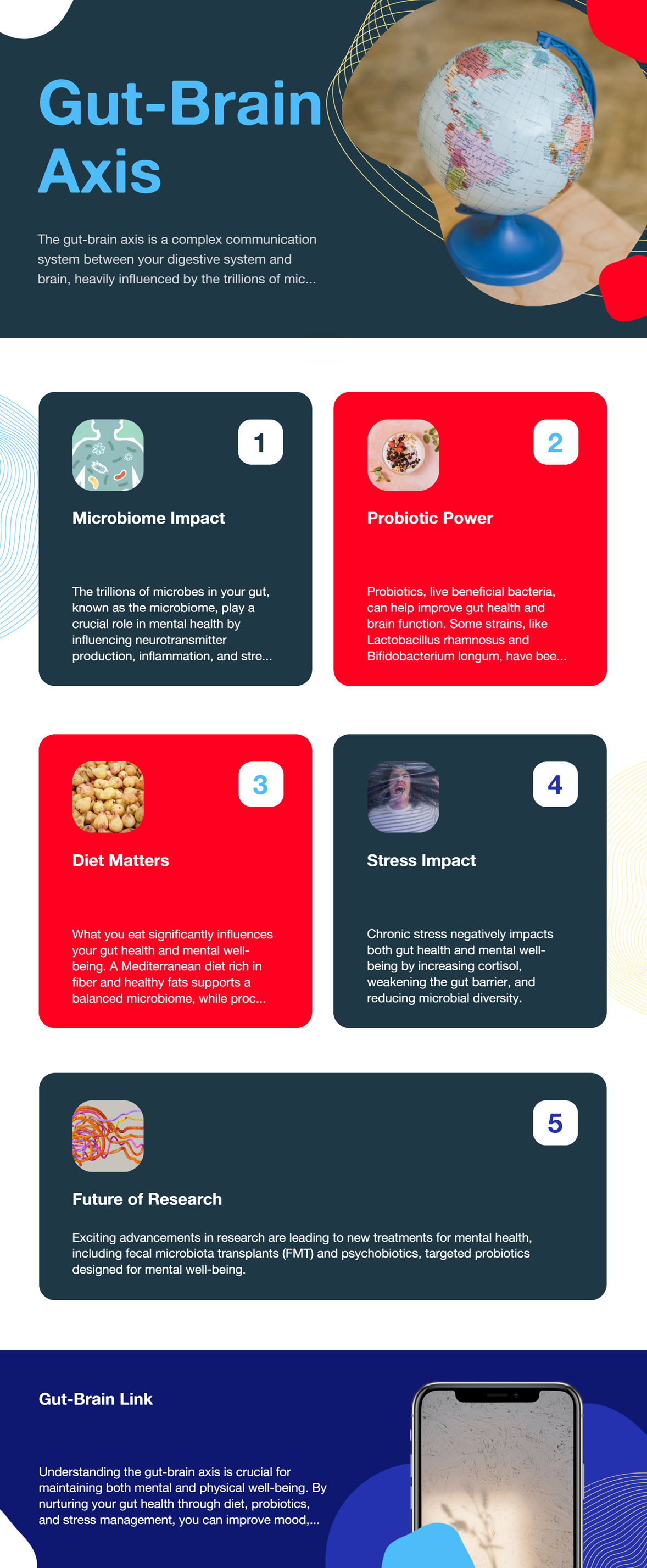The connection between gut health and mental well-being has become a groundbreaking area of research in recent years. The gut-brain axis (GBA) refers to the bidirectional communication between the gastrointestinal tract and the central nervous system, significantly influenced by the gut microbiome. This discovery has reshaped our understanding of conditions like anxiety, depression, and even neurodegenerative diseases.
The gut-brain axis (GBA) is a complex, biochemical and neurological pathway connecting the digestive system and the brain. It allows constant communication through various mechanisms, including:
This intricate system explains why gut health plays a major role in mental disorders and cognitive function.

The gut microbiome consists of trillions of bacteria, fungi, and viruses that live in the digestive tract. These microbes perform essential functions such as:
An imbalanced microbiome (dysbiosis) has been linked to mood disorders, poor cognitive function, and even neurodegenerative diseases.

Research shows a direct link between gut bacteria composition and mental health conditions:
Studies indicate that improving gut health can enhance mood, reduce anxiety, and even improve resilience to stress.

Probiotics: The "Good" Bacteria
Probiotics are live beneficial bacteria that improve gut health and brain function. Some of the best strains for mental health include:
| Probiotic Strain | Mental Health Benefits |
|---|---|
| Lactobacillus rhamnosus | Reduces anxiety and depression symptoms |
| Bifidobacterium longum | Lowers stress and improves cognition |
| Lactobacillus helveticus | Enhances mood and emotional balance |
Prebiotics: Fuel for Gut Bacteria
Prebiotics are fiber-rich foods that feed beneficial bacteria. Great sources include:
Both probiotics and prebiotics are essential for maintaining a healthy gut-brain connection.
A poor diet can damage gut health and exacerbate mental health issues. Here’s how different diets impact the microbiome:
Beneficial Diets for Gut and Brain Health
Harmful Diets for Gut and Brain Health
Optimizing diet is a powerful strategy for both mental and gut health.
Chronic stress negatively impacts both gut health and mental well-being by:
How to Reduce Stress and Support Gut Health
Managing stress effectively protects both gut health and mental function.
Emerging research suggests that an imbalanced gut microbiome may contribute to Alzheimer’s, Parkinson’s, and other cognitive disorders.
Gut health interventions may help prevent and slow the progression of neurodegenerative diseases.
Scientific advancements are bringing exciting possibilities for gut-brain therapies, including:
The future of mental health treatment may rely heavily on gut microbiome manipulation.

The gut-brain axis is a revolutionary concept that highlights the profound connection between digestive health and mental well-being. By nourishing gut bacteria through diet, probiotics, and stress management, we can improve mood, reduce anxiety, and potentially prevent cognitive decline.
Taking small steps to optimize gut health today can lead to significant mental health benefits in the long run.
Yes! The gut produces neurotransmitters like serotonin, directly influencing mood and emotional stability.
Fermented foods, fiber-rich vegetables, and polyphenol-rich foods like berries and dark chocolate support a healthy microbiome.
Certain probiotic strains like Lactobacillus rhamnosus and Bifidobacterium longum have been shown to reduce anxiety and stress.
Chronic stress increases cortisol, which disrupts the gut microbiome and contributes to inflammation and digestive issues.
Yes, research indicates that imbalanced gut bacteria are linked to depression, largely due to their role in neurotransmitter production and inflammation.
By focusing on gut health, we can unlock new potential for improving mental well-being and overall health.
 07.03.2025
07.03.2025